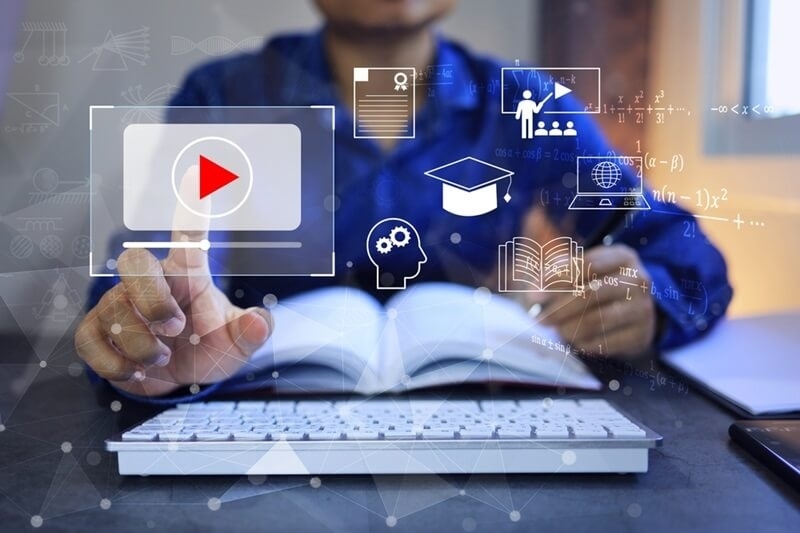
Over a few years, online education has been radically changed. Usually, online courses are sequential without giving a choice to learners as to the pace of their learning. But, different students have different learning requirements, abilities, and weaknesses. This is why the adaptive learning technology is relevant in this case. By a customized learning experience, it provides students with a most effective way of learning.
Adaptive learning technology is a system that adjusts the educational material and the speed of the study for individual students. The teaching technology helps without human intervention by looking at the learner's progress and finding areas where he needs more practice or more understanding. Since in this method the emphasis is put on the specific needs of the student, this can considerably raise learning outcomes.
Adaptive learning systems are not limited to the adoption of traditional online courses but rather utilize algorithms and data analytics to customize lessons on the fly. Hence, learners can dedicate more hours to topics that are difficult for them and less to those in which they are proficient.
Adaptive Learning Online Platforms use AI, data tracking, and smart assessment to offer an adaptive learning method. As the learner goes through the quizzes, assignments, or interactive exercises, the system gauges his/her performance. Based on the evaluation, it suggests fresh content, reworks the difficult concepts, or quickens learning in those areas where the learner is already strong.
Adaptive learning online is characterized by the following main features:

The technology of the personalized learning environment is transforming the way students deal with online courses. A main point in its favor is that it makes learning more productive. No student is forced to spend time on a known topic. On the contrary, the system identifies knowledge gaps and directs teaching precisely where it is most needed.
There are also some other benefits of personalized learning tech:
Learning gets more engaging since it is more relevant for each student.
The process of learning is adjusted to individual requirements, thus students can obtain better results and do it in a shorter timeframe.
Courses with adaptive learning in online education are redefining the experience of students by making it more interactive and student-centered. They have been created to change difficulty, content type, or lesson sequence depending on the progress of the learner. To illustrate, a student having trouble with a math concept will get more practice problems, while another student who understands the concept quickly will be able to move on to more advanced topics.
Online courses featuring adaptive learning are available for a broad spectrum of subjects, ranging from language learning to professional certifications. They are especially good for learners who are independent and want to learn at their own pace but at the same time need some direction to focus on their weak points.
The most notable features include:
Personalization at this level helps learners to keep their motivation and has a positive impact on the overall learning outcomes.
It is a well-known fact that various adaptive learning platforms gained popularity over the last couple of years. These platforms rely on intelligent algorithms to provide personalized content and keep track of learning progress. The main idea behind their creation is to support students and instructors in the online learning process.
Adaptive learning platforms typically feature:
Using these platforms, teachers have a chance to develop an environment that meets the personal needs of students and at the same time they can handle a large number of learners.
Adaptive e-learning tools play a vital role in the large-scale implementation of personalized learning. Such tools have the capacity to gather data from learners, recognize regularities, and provide suggestions for the learning path. While the tools are positioned to be used by students, they also have the potential to be utilized by instructors for course development purposes.
Main benefits of adaptive e-learning tools are:
Online education, with the support of adaptive e-learning tools, becomes more efficient, interesting, and personalized to an individual's needs.
The use of adaptive learning technology goes beyond the scope of academic subjects. Professional development, corporate training, and certification programs are its major areas of implementation. Companies are increasingly turning to adaptive learning platforms as a solution for their employee training needs. By making the training modules personalized, organizations can be certain that employees will acquire the necessary skills without repeating the same things over and over again.
Other applications include:
These instances demonstrate that adaptive learning technology has significant uses in the practical world beyond traditional classrooms.
Adaptive learning technology comes with a bundle of benefits; however, it also has some obstacles that needs to be addressed. Privacy of data is a major issue that is of much concern because these systems store comprehensive information about the learner's activities. Educators and platforms handling this data must guarantee that the data is well protected and used in an ethical ways.
Moreover, another problem is to make sure that the technology works as a partner with human teachers not as a competitor. Adaptive solutions guide and give feedback, but motivation, mentoring, and giving further explanation in complex subjects have to come from humans.
Online education has a great future that is going to be largely dependent on adaptive learning online. With the continuous improvements in artificial intelligence and machine learning, delivering personalized learning experiences will be more and more feasible.
Adaptive e-learning tools will have the features of being clever, user-friendly, and accessible, thus the barrier of age and educational level will no longer be an obstacle for learners to reach their goals.
The introduction of adaptive learning technology into online education is a great change that results in the provision of personalized experiences, which meet the unique needs of each student. Through adaptive learning online systems, personalized learning technology, online courses with adaptive learning, adaptive learning platforms, and adaptive e-learning tools, better outcomes, as well as motivation and engagement, can be achieved.
This is just the beginning of technological advancement in personalized online courses, and in the future, online courses will become customized and more effective for everyone.
This content was created by AI